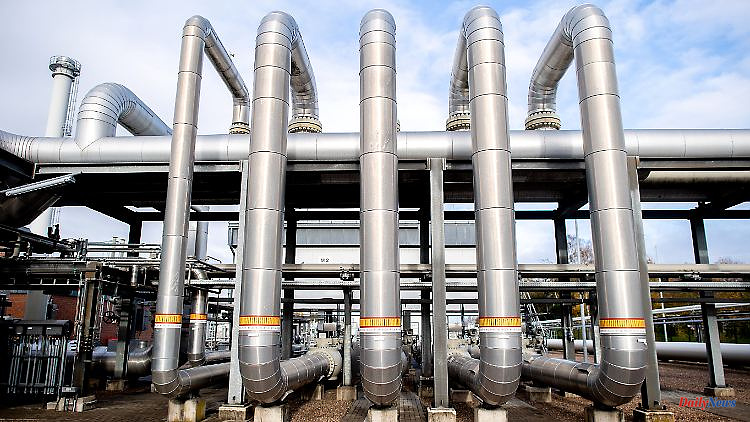Hardly any other EU project has recently caused as much controversy as the European gas price cap. It can be used from today. This raises the question of whether the previous excitement was not in vain.
Just 1000 percent more: As a result of Russia's war against Ukraine, there was a drastic increase in wholesale prices for natural gas in Europe last year - with consequences for consumers and the economy that are still being felt today. An EU price cap is intended to prevent such a situation from happening again.
Why is?
The so-called market correction mechanism is intended to protect citizens and business from excessive prices. Specifically, the aim is to prevent wholesale gas prices in the EU from being significantly higher than world market prices for a long period of time.
How is the goal to be achieved?
The EU will in future ban certain gas trades when their price reaches a predetermined level and the price increase does not correspond to a similar price increase at regional or global level. The correction mechanism is triggered if the price of the products exceeds 180 euros per megawatt hour for three working days and at the same time is 35 euros above an international average price for liquid natural gas (LNG).
Will the mechanism take effect immediately this Wednesday?
No. The relevant European gas price was recently between 50 and 60 euros and thus well below the limit of 180 euros per megawatt hour. That's miles away from the highs seen last August, which sparked a debate about a price cap. At that time, according to the EU Commission, European natural gas prices reached a level that was 1000 percent higher than the average prices recorded in the Union to date. While prices have fluctuated between 5 and 35 euros per megawatt hour over the past ten years, last summer they climbed to record levels of well over 300 euros per megawatt hour.
How did the drastic price increase come about?
According to an analysis by the EU Commission, prices rose primarily because Russia used its gas supplies as a weapon and manipulated the market through deliberate disruptions. In August, the relationship between supply and demand was particularly tense because, in addition to a reduction in pipeline flows, EU countries were trying to fill up storage facilities before winter. According to the analysis, the fear of further supply disruptions and market manipulations by Russia also played a role - and also the pricing mechanism, which was not geared to such extreme changes in demand and supply.
What is the forecast for wholesale prices?
According to estimates by gas market experts, the price development will primarily depend on the weather during the rest of the heating season. If temperatures allow larger gas reserves to remain in storage, there could be a summer slump in prices.
Why was the federal government strictly against the price cap for a long time?
She feared supply problems because she saw the risk that suppliers would not accept the price cap and simply no longer deliver gas to Europe. In December, however, Chancellor Olaf Scholz agreed. The main reasons for this were strict safety rules. They provide that the market correction mechanism will only be triggered in situations where European prices are significantly higher than prices on world markets for a longer period of time. In addition, the mechanism is deactivated when the difference to European prices decreases or disappears.
What is the difference to the German gas price brake?
The German gas price brake starting in March directly affects end consumers and is intended to cushion the consequences of the rapidly rising energy prices. Households and small and medium-sized companies are guaranteed a gross gas price of 12 cents per kilowatt hour for 80 percent of their previous consumption. For the remaining 20 percent, the normal contract price should apply - so an incentive to save should be retained.
How do energy companies see the European price brake?
Very critical. "At the European level, there is the illusion that we are capping the price of gas. And if the price is too high, no more business can be concluded. It won't work," said Markus Krebber, head of the energy group RWE, in the podcast "Die Economic reporter" of the "Westdeutsche Allgemeine Zeitung".
Even before Christmas, the Federation of German Industries had already criticized the decision on an EU gas price cap as a risk to security of supply. "Gas price caps do not solve a supply crisis, but fundamentally risk the security of supply in Europe," said Deputy General Manager Holger Loesch at the time. Gas goes to the regions that are willing to pay the prices caused by the gas shortage.












